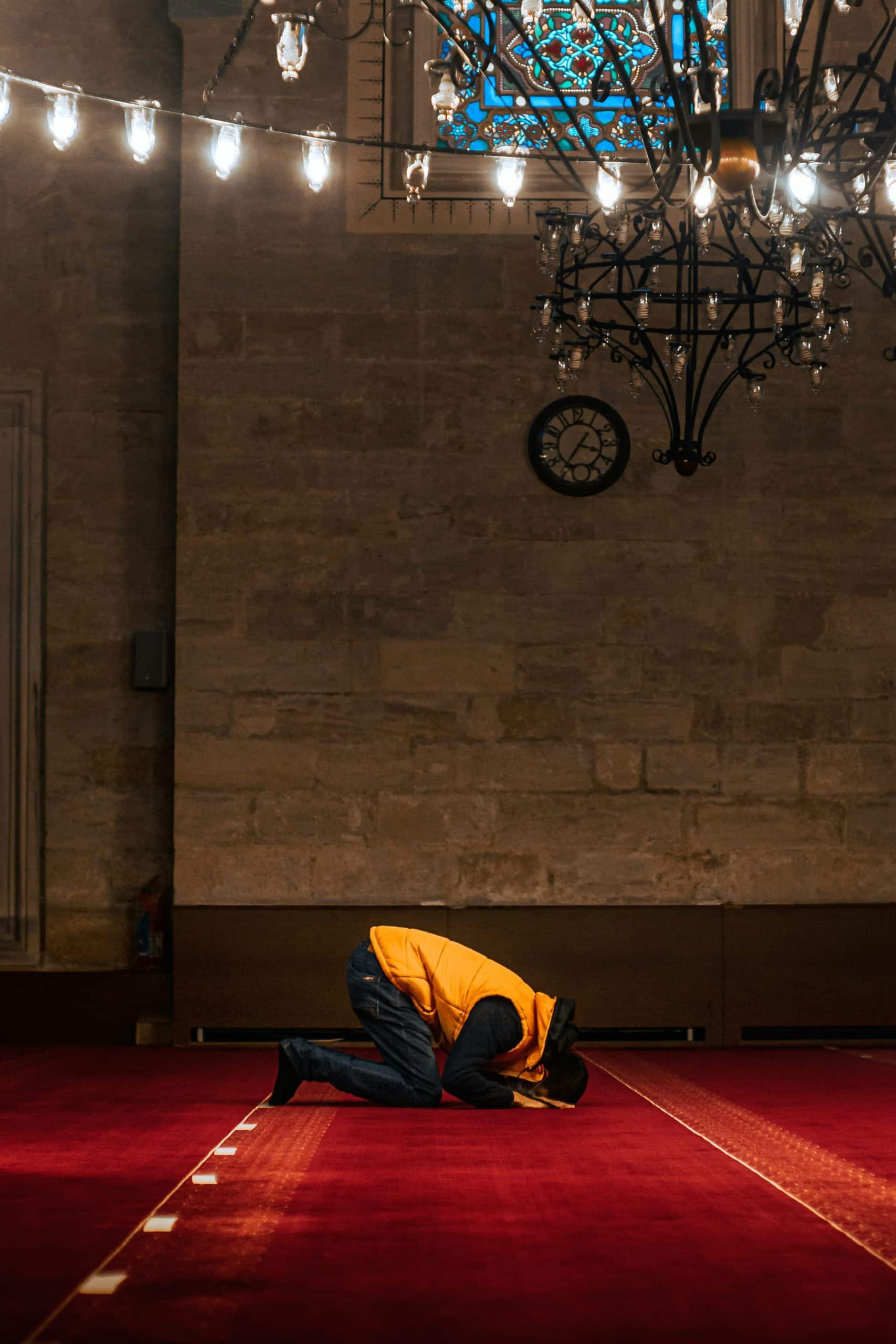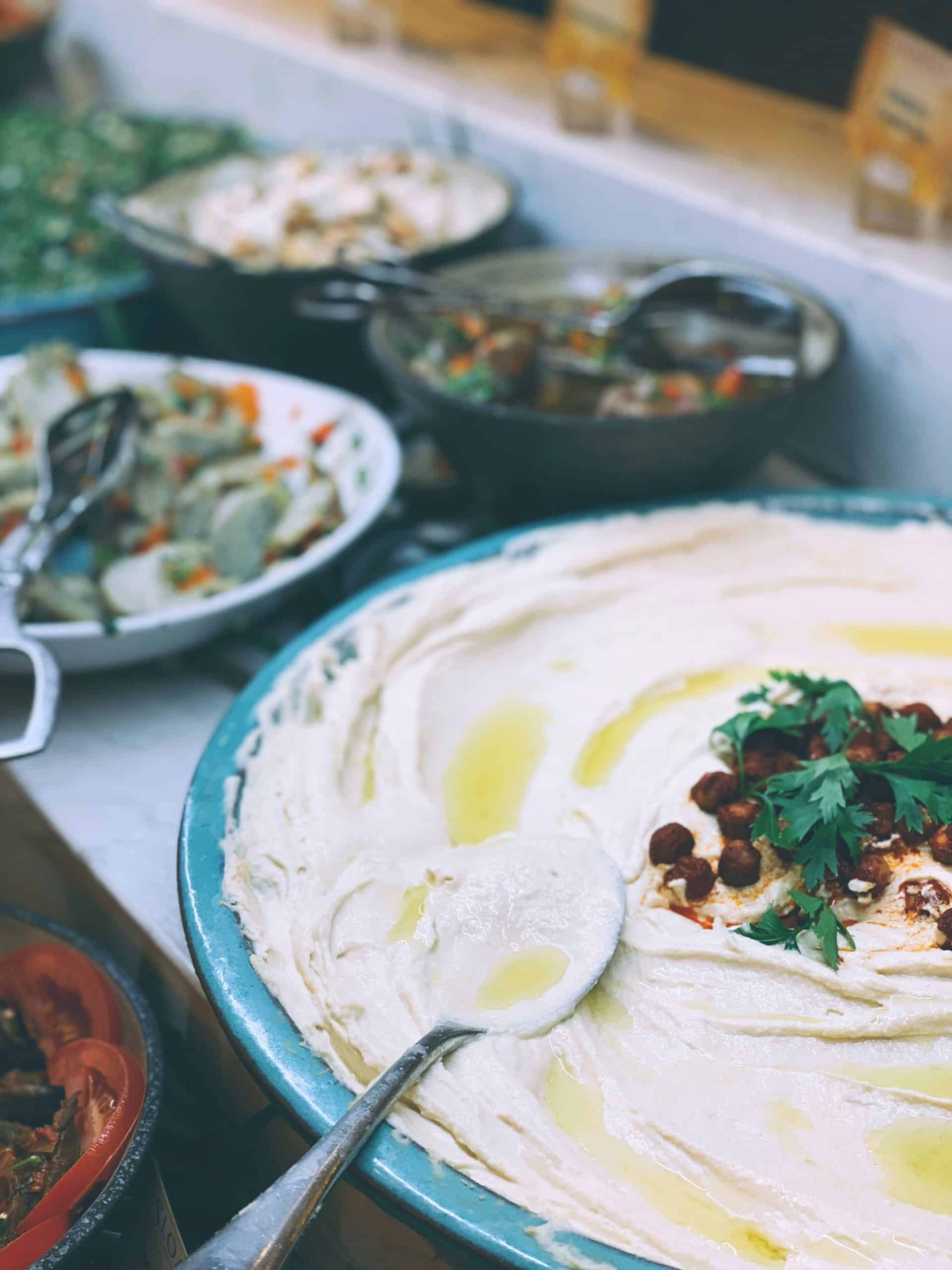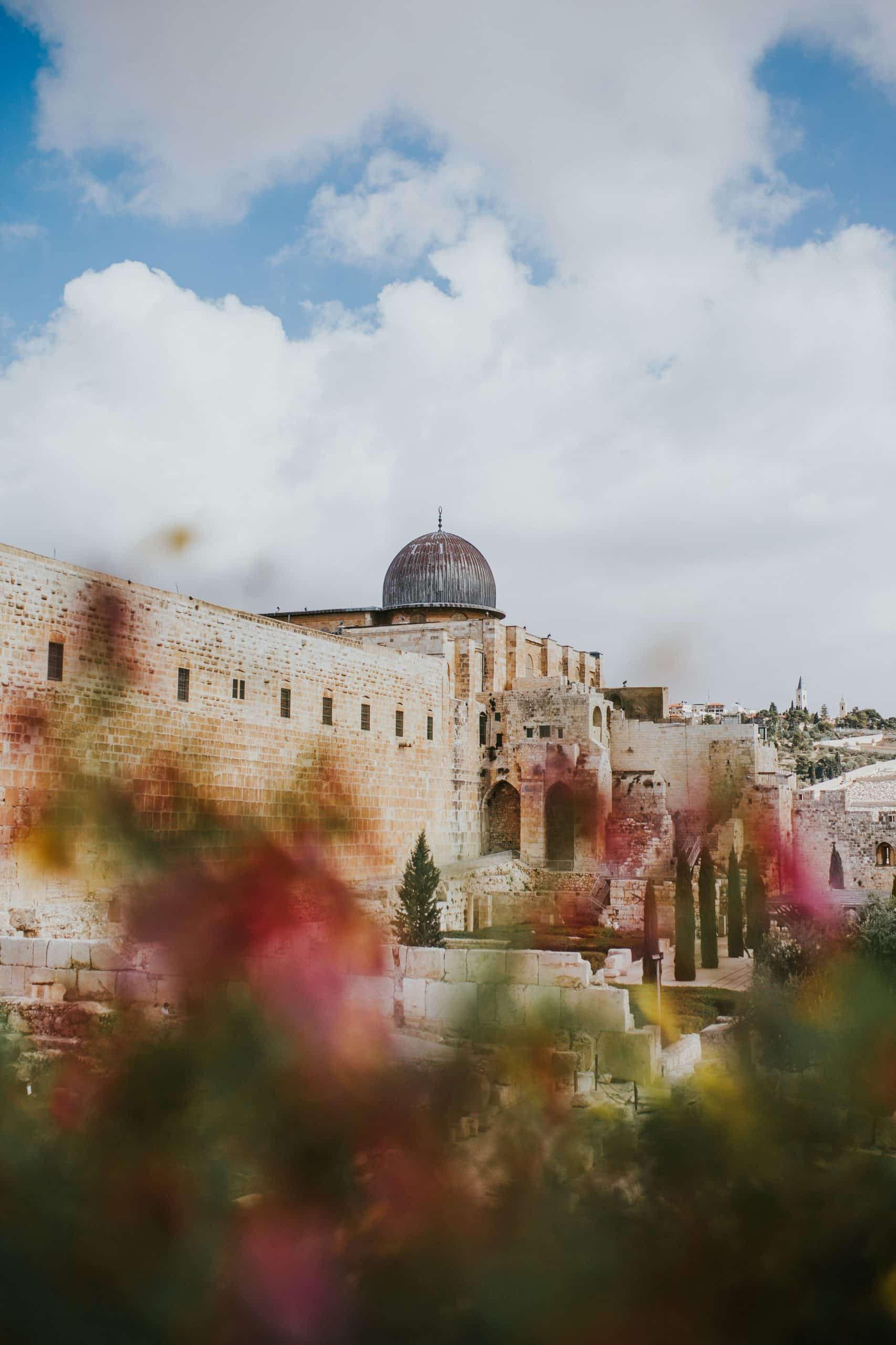A Muslim man from Yemen came to faith in Jesus recently through the matter of fasting. But probably not in the way you might imagine.
 Ramadan has just begun, the one and only Muslim holiday. Adherents to Islam are supposed to fast during daylight hours for the entire month of Ramadan. However, despite the fasting, it’s not exactly a very holy holiday for multiple reasons. As soon as the sun sets, there’s a food fest of epic proportions, and more food is bought and eaten during Ramadan than any other time of the year! More seriously, Ramadan is also known to be a time of increased Muslim violence, and this is provoking people who are truly devoted to their creator to start asking questions.
Ramadan has just begun, the one and only Muslim holiday. Adherents to Islam are supposed to fast during daylight hours for the entire month of Ramadan. However, despite the fasting, it’s not exactly a very holy holiday for multiple reasons. As soon as the sun sets, there’s a food fest of epic proportions, and more food is bought and eaten during Ramadan than any other time of the year! More seriously, Ramadan is also known to be a time of increased Muslim violence, and this is provoking people who are truly devoted to their creator to start asking questions.
“Brother, can you tell me what fasting is like in the Christian tradition?”
What Jesus says about godly fasting
This Yemeni man had become troubled by what he was seeing and hearing around him regarding Ramadan. He found it very odd that such a supposedly holy time should lead to hatred and murder. Surely a time of seeking God should be about righteousness, goodness, peace? It didn’t sit well with him. So he reached out on the internet to our Arabic outreach team to ask their perspective. They went through the teachings of Jesus on the matter, looking together at Matthew 6:
“When you fast, do not look somber as the hypocrites do, for they disfigure their faces to show others they are fasting. Truly I tell you, they have received their reward in full. But when you fast, put oil on your head and wash your face, so that it will not be obvious to others that you are fasting, but only to your Father, who is unseen; and your Father, who sees what is done in secret, will reward you.” (Matthew 6:16-18)
Carlos explained that true fasting was a secret matter between us and God, not something to display to others in order to receive adulation and praise. Jesus taught that all the glory was to go to God, and that we are rewarded by Him.
This response made our new brother in faith extremely happy to hear. He has enthusiastically received Jesus as Lord in conversations since. And he’s not the only one noticing the discrepancies between the idea of Ramadan in theory and what it really is in practice.
The irony of Ramadan
During the ninth month on the Islamic calendar, the month of Ramadan, Muslims are supposed to fast from both food and drink during daylight hours. According to the Islamics Network Group, “the ultimate goal of fasting is gaining greater God-consciousness, known in Arabic as taqwa, signifying a state of constant awareness of God”. However, it’s somewhat ironic that in practice Ramadan is almost the opposite of a fast. Plus, worshiping the god of the Koran and encouraging terrorism is not exactly honoring to the one true God of Abraham, Isaac and Jacob.
 This nil-by-mouth business is very difficult, especially in hot, dry countries where many Muslims live. Water is not allowed, and it’s even considered “Haram” (forbidden) to swallow your own saliva. But once that sun goes down it’s another story entirely. Two massive meals are eaten in the dark hours, one in the evening (iftar) and a huge breakfast (suhoor or sehri) before dawn to start the day. Suhoor and iftar meals include all kinds of wonderful foods: all kinds of meats and vegetables, breads, cheeses, sweets and fresh fruits—all restrictions and lifted and great feasting erupts in earnest. There is no other feast in Islam, so Muslims really make the most of this time to celebrate with family and friends in the community. But isn’t it a little odd that this fast involves so much food?!
This nil-by-mouth business is very difficult, especially in hot, dry countries where many Muslims live. Water is not allowed, and it’s even considered “Haram” (forbidden) to swallow your own saliva. But once that sun goes down it’s another story entirely. Two massive meals are eaten in the dark hours, one in the evening (iftar) and a huge breakfast (suhoor or sehri) before dawn to start the day. Suhoor and iftar meals include all kinds of wonderful foods: all kinds of meats and vegetables, breads, cheeses, sweets and fresh fruits—all restrictions and lifted and great feasting erupts in earnest. There is no other feast in Islam, so Muslims really make the most of this time to celebrate with family and friends in the community. But isn’t it a little odd that this fast involves so much food?!
 And secondly, the idea of gaining more awareness of God seems similarly contradictory. Every year during Ramadan, Israelis have to batton down the hatches and prepare for violent attacks. There’s usually a spike in terrorism throughout the month of Ramadan as the predictable rumors get fanned into flame that Israel is “desecrating” or “trampling” the Temple Mount, known as the “noble sanctuary” (al-Haram al-Sharif) in Arabic, and the manufactured threat to the Al Aqsa mosque, which they see as synonymous with the whole plaza area. These false reports of Jewish people “storming” the mosque have ignited outbreaks of violence and even massacres for the last 100 years. The famous 1929 Hebron Massacre in which almost 70 Jewish people were murdered was precipitated by such reports, as it was rumored that Jewish people were trying to seize the mosque by force. While there have been provocative developments from the more extreme fringes in Israel wanting to worship on the Temple Mount, these inflammatory lies about the mosque being in danger are constantly circulated to keep fueling the fire of Jewish-Arab relations on the most contested piece of real estate in the world.
And secondly, the idea of gaining more awareness of God seems similarly contradictory. Every year during Ramadan, Israelis have to batton down the hatches and prepare for violent attacks. There’s usually a spike in terrorism throughout the month of Ramadan as the predictable rumors get fanned into flame that Israel is “desecrating” or “trampling” the Temple Mount, known as the “noble sanctuary” (al-Haram al-Sharif) in Arabic, and the manufactured threat to the Al Aqsa mosque, which they see as synonymous with the whole plaza area. These false reports of Jewish people “storming” the mosque have ignited outbreaks of violence and even massacres for the last 100 years. The famous 1929 Hebron Massacre in which almost 70 Jewish people were murdered was precipitated by such reports, as it was rumored that Jewish people were trying to seize the mosque by force. While there have been provocative developments from the more extreme fringes in Israel wanting to worship on the Temple Mount, these inflammatory lies about the mosque being in danger are constantly circulated to keep fueling the fire of Jewish-Arab relations on the most contested piece of real estate in the world.
With Israel fighting Hamas in the south and Hezbollah in the north, the last thing we need is an outbreak of attacks from the West Bank—or worse, from Muslim radicals within Israel itself. We want to ask you to pray for us during this month in particular!
Esther’s fast and the Feast of Purim
 Unusually, the Feast of Purim (which celebrates the incredible turnaround story of Esther) will fall right in the middle of Ramadan this year, on March 23-24.
Unusually, the Feast of Purim (which celebrates the incredible turnaround story of Esther) will fall right in the middle of Ramadan this year, on March 23-24.
Queen Esther stood up for the people of Israel at great cost to herself and averted total annihilation of the Jewish people, and the scroll of the story will be read aloud in Jewish communities around the world.
It’s also interesting that Esther herself called for a fast for the entire house of Israel, and that it was again a nil-by-mouth kind of fasting: no food or even water at all for three days and nights.
It was a very extreme kind of a fast, but it was a very extreme circumstance. As is often mentioned, the name of God never appears in the whole book of Esther, but the people prayed and fasted, and God heard their prayers and acted in the most remarkable way on their behalf. Haman’s decree encouraging people throughout the Persian Empire to kill the Jews was not repealed by the Persian King, but permission was granted to let the Jewish people defend themselves. It all seems remarkably pertinent in our days, doesn’t it? The evil spirit of Haman (who was an Amalekite) is still on the prowl, seeking to annihilate Israel. The trouble doesn’t stop, but somehow God saves the day anyway.
“Now in the twelfth month, which is the month of Adar, on the thirteenth day of the same, when the king’s command and edict were about to be carried out, on the very day when the enemies of the Jews hoped to gain the mastery over them, the reverse occurred: the Jews gained mastery over those who hated them. The Jews gathered in their cities throughout all the provinces of King Ahasuerus to lay hands on those who sought their harm. And no one could stand against them, for the fear of them had fallen on all peoples. All the officials of the provinces and the satraps and the governors and the royal agents also helped the Jews, for the fear of Mordecai had fallen on them…
Now the rest of the Jews who were in the king’s provinces also gathered to defend their lives, and got relief from their enemies and killed 75,000 of those who hated them, but they laid no hands on the plunder. This was on the thirteenth day of the month of Adar, and on the fourteenth day they rested and made that a day of feasting and gladness.” (Esther 9:1-3, 16-17)
The story of Esther ends in celebration for the Jewish people, and the establishment of the Feast of Purim, but the sheer number of Israel’s enemies who were killed, “75.000 of those who hated them” does not lend itself to a politically correct fairytale. The Bible is full of such stories, and we all need to decide what to make of them. We also learn many gentiles of the time joined the house of Israel and became part of the people of God. We pray earnestly for this in our day, for many salvations both in Israel and Gaza. Meanwhile, Israeli believers have been committing days for prayer and fasting due to the dire situation we find ourselves in here. Many joined together in February for a concentrated time of prayer, and many more will be doing an “Esther fast” in the lead up to Purim, on March 20-22.
Lent: A time of Christian fasting
 We are also, by coincidence, in the middle of the 40 days of Lent, a time of fasting for Christians around the world. It’s traditional in many places to fast for the 40 days up until Resurrection Sunday, which falls on March 31 this year, when the fast is broken. That’s a very different kind of fasting again, different to Ramadan and obviously very different to the hardcore Esther fast. Many Christians abstain from certain kinds of food or drink: chocolate, sweets, caffeine, and so on. Some choose to give up other things for Lent, such as social media. There are many ways to make a sacrifice in the flesh, and to focus more on God and prayer for 40 days, reminiscent of the 40 days Jesus spent fasting in the wilderness.
We are also, by coincidence, in the middle of the 40 days of Lent, a time of fasting for Christians around the world. It’s traditional in many places to fast for the 40 days up until Resurrection Sunday, which falls on March 31 this year, when the fast is broken. That’s a very different kind of fasting again, different to Ramadan and obviously very different to the hardcore Esther fast. Many Christians abstain from certain kinds of food or drink: chocolate, sweets, caffeine, and so on. Some choose to give up other things for Lent, such as social media. There are many ways to make a sacrifice in the flesh, and to focus more on God and prayer for 40 days, reminiscent of the 40 days Jesus spent fasting in the wilderness.
Selfless giving to those in need is also part of fasting in all three cases: during Ramadan, Purim, and also Lent. However, true fasting and real generosity must not done for man’s approval, but to please God. Like any kind of fasting or giving, it can become something that is done for human praise. Fasting has the potential to wield a great spiritual impact, but when done for approval from others becomes completely devoid of power. People who fast in this way will already have received their reward, Jesus says. However, true fasting and the prayers of a person who is right with God is extremely powerful, and has great effect. The heavens are open and the King is listening, beckoning for us to come and present our requests.
Invitation to pray and fast at this time
So with all these different kinds of fasting—Muslims fasting for the month of Ramadan, Jewish people at the fast of Esther, and Christians giving up things for Lent—none of this means anything if our hearts aren’t right with God. There are many ways to fast, and different kinds of fasting, but there’s only one way to come to the Father, and that is through Jesus Himself. Not through religion or human traditions, nor through our attempts to do good works, but through Jesus who makes us righteous through His own sacrifice for sin.
True fasting is a time of dialing down the flesh and ego with all its demands, and tuning into God: His heart, His ways, His priorities.
True fasting is all about seeking God’s face, growing more like Him in holiness, and expressing His heart of compassion to others. There’s precious little of godly love and shalom here in the region at the moment, and we’d love to urge you to pray. Most of the trouble facing Israel right now can be traced back to Iran, where the story of Purim first took place. Whether it’s Hamas, Hezbollah, or the Houthis, Israel is being threatened on every side by Iranian proxies. Similarly there’s extreme suffering in Gaza, and thousands of both Israelis and Lebanese people have been forced to leave their homes in the north. Too many have been killed in terrible ways. This is not a simple situation and simplistic categories of good guys and bad guys are neither helpful nor truthful. God loves all the peoples of the Middle East and Jesus died to save us all. Israel is home to Jews but also millions of Muslims and Arab Christians too. He longs for all to know Him. It seems the prayers of last year’s Isaiah 62 fast have been effective in preventing full scale destruction as the carefully crafted plans of Hamas and Hezbollah failed to materialize, and we are so grateful to everyone who took part in that initiative. We’re asking you now to please keep praying for us, and for all involved in this terrible conflict. Our prayers make more difference than we know.
Pray for Muslims – for revelation, and salvation as many seek God especially during the month of Ramadan (Sunday March 10 – Tuesday April 9, 2024)
Pray for peace – for violent attacks to be thwarted and for God to keep the situation in Israel peaceful throughout Ramadan and over the time of Purim
Pray for “Esthers” and “Mordecais” to rise up – that God would raise believers all around the world to join in earnest prayer for the salvation and protection for Israel and for all the peoples of the Middle East.
“I urge, then, first of all, that petitions, prayers, intercession and thanksgiving be made for all people – for kings and all those in authority, that we may live peaceful and quiet lives in all godliness and holiness.” (1 Timothy 2:1-2)
Picture by Jeremy Yap on Unsplash
















